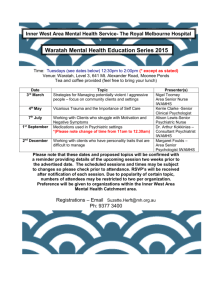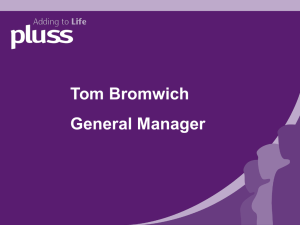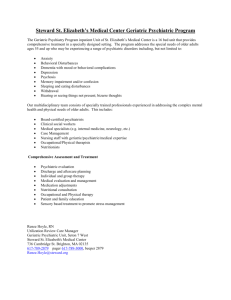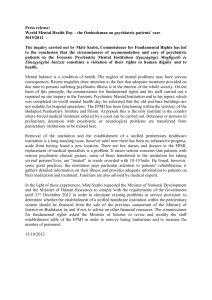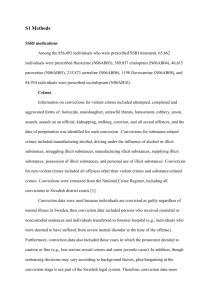Mental Health Press Release 2014
advertisement
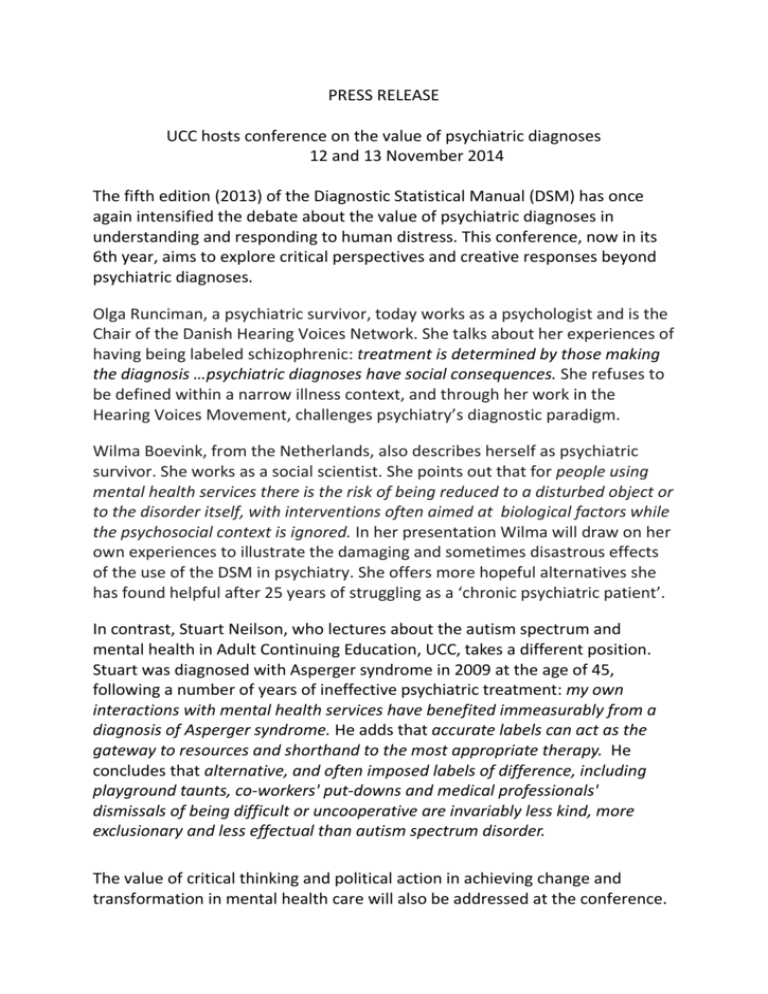
PRESS RELEASE UCC hosts conference on the value of psychiatric diagnoses 12 and 13 November 2014 The fifth edition (2013) of the Diagnostic Statistical Manual (DSM) has once again intensified the debate about the value of psychiatric diagnoses in understanding and responding to human distress. This conference, now in its 6th year, aims to explore critical perspectives and creative responses beyond psychiatric diagnoses. Olga Runciman, a psychiatric survivor, today works as a psychologist and is the Chair of the Danish Hearing Voices Network. She talks about her experiences of having being labeled schizophrenic: treatment is determined by those making the diagnosis …psychiatric diagnoses have social consequences. She refuses to be defined within a narrow illness context, and through her work in the Hearing Voices Movement, challenges psychiatry’s diagnostic paradigm. Wilma Boevink, from the Netherlands, also describes herself as psychiatric survivor. She works as a social scientist. She points out that for people using mental health services there is the risk of being reduced to a disturbed object or to the disorder itself, with interventions often aimed at biological factors while the psychosocial context is ignored. In her presentation Wilma will draw on her own experiences to illustrate the damaging and sometimes disastrous effects of the use of the DSM in psychiatry. She offers more hopeful alternatives she has found helpful after 25 years of struggling as a ‘chronic psychiatric patient’. In contrast, Stuart Neilson, who lectures about the autism spectrum and mental health in Adult Continuing Education, UCC, takes a different position. Stuart was diagnosed with Asperger syndrome in 2009 at the age of 45, following a number of years of ineffective psychiatric treatment: my own interactions with mental health services have benefited immeasurably from a diagnosis of Asperger syndrome. He adds that accurate labels can act as the gateway to resources and shorthand to the most appropriate therapy. He concludes that alternative, and often imposed labels of difference, including playground taunts, co-workers' put-downs and medical professionals' dismissals of being difficult or uncooperative are invariably less kind, more exclusionary and less effectual than autism spectrum disorder. The value of critical thinking and political action in achieving change and transformation in mental health care will also be addressed at the conference. Pat Bracken, Clinical Director of the Mental Health Service in West Cork, Ireland argues that unless professionals are able to embrace critical reflection on their assumptions, values and practices, their engagement with the recovery approach will be superficial at best and tokenistic at worst. David Harper, a Reader in Clinical Psychology at the University of East London, suggests that we need to develop a broader range of tactics focused on the institutional pillars that support psychiatric diagnosis The conference organisers, Harry Gijbels and Lydia Sapouna, are anticipating another successful conference: we hope that the conference offers delegates the opportunities to critically think about the value and relevance of psychiatric diagnoses, and learn about ways to work outside this narrow way in understanding and responding to human distress. This conference is unique as it is free for all participants and involves people from diverse backgrounds (self-experience, survivors, professionals, academics, carers/supporters) presenting, discussing and debating critical and creative perspectives on and beyond the dominant bio-medical approach. The 2010 conference saw the launch of the Critical Voices Network Ireland (CVNI), a network of people interested in considering and developing responses to human distress, which are creative, enabling, respectful and firmly grounded in human rights. The conference will include an open forum to discuss the ongoing work of the CVNI. Keynote Speakers: Pat Bracken, Consultant Psychiatrist and Clinical Director, West Cork Mental Health Service; Wilma Boevink, Expert by Experience, Social Scientist, Netherlands; David Harper, Reader in Clinical Psychology, University of East London. Stuart Neilson, lecturer Adult Continuing Education University College Cork, Ireland; Olga Runciman, psychiatric survivor and chair of the Danish Haring Voices network, Denmark; Jim Walsh PhD candidate, Dublin City University, Ireland. Concurrent sessions: the conference includes 31 concurrent sessions reflecting the conference theme. The Conference organisers are Harry Gijbels, Catherine McAuley School of Nursing and Midwifery, and Lydia Sapouna, School of Applied Social Studies, University College Cork, Ireland. Programme details available on http://www.ucc.ie/en/nursingmidwifery/news/ Contact details: Lydia Sapouna l.sapouna@ucc.ie tel. 087-9225910; Harry Gijbels h.gijbels@ucc.ie tel. 085-7554220



